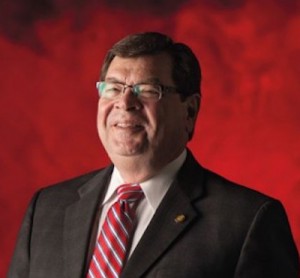Budget drama takes toll on college students’ financial support
By Kevin Beese For Chronicle Media — March 7, 2016
The Castle on the campus of Eastern Illinois University. EIU is among the universities and colleges in financial trouble without state funding coming through. (Photo courtesy EIU)
Many students in higher learning institutions across the state have a burning question that has yet to be answered despite months of debate.
It is not the age-old stickler “What is the meaning of life?” Nor is the philosophical quandary “Do we have free will?” It is not even the more personal challenge of “What should my major be?”
It is a basic inquiry of finances, “Will I be here next year?”
For more than 130,000 Illinois college students who rely on the state’s Monetary Assistance Program to cover their tuition and living expenses, the budget stalemate in Springfield is threatening to nip their education in the bud.
The Illinois House failed March 2 in an attempt to override Gov. Bruce Rauner’s veto of not funding the program.
Despite the Legislature’s failure to approve funding for the tuition assistance program for 2015-16, most colleges and universities covered students’ MAP awards internally for the fall 2015 semester. Many, although a definite drop from fall, are also picking up the MAP tab for students’ spring semester.
DePaul University in Chicago is locking in to cover students’ spring semester MAP allocations as well, according to school president, the Rev. Dennis H. Holtschneider, C.M.
“In keeping with our Catholic Vincentian mission, DePaul is announcing that it will honor the Monetary Award Program grants awarded by the Illinois Student Assistance Commission to DePaul students this year,” Holtschneider said. “That means 4,500 current DePaul students can be certain the university will stand with them during this impasse.”
Holtschneider said the school is also willing to cover the grant costs for any MAP-eligible freshmen or transfer students entering DePaul for Fall 2016.
“Thousands of high school students in Illinois are currently choosing which college to attend in the fall,” he said. “Uncertainty about MAP funding should not create additional anxiety in making the college choice that best meets their academic and career goals. Therefore, DePaul will honor the MAP grant next year for all new entering students — freshmen or transfers — who applied for financial aid … if the state continues at a budgetary impasse into next (school) year.”
Kristin Claes Matthews, manager of news and integrated content for DePaul, said the school gets about $20 million annually in MAP grants from the state.
“Although this will cause some financial challenges for the university, we will delay some capital projects and shift some other priorities so that we can meet our commitment to our students who are dependent on MAP funds,” Matthews said.
About 5 percent of the DePaul student body gets MAP funding.
Illinois State University in Normal has enough cash reserves to weather the funding drought for, now, but University President Larry Dietz has stated that while the school does not plan faculty layoffs, it is not replacing any open positions.
State Rep. Tom Bennett (R-Gibson City) said that this drama does not need to continue to play out. He said top leaders in both parties could get together and hammer out an agreement “but I don’t see that happening anytime real soon.
“We are in uncharted waters. I don’t really know how much longer this can go on,” the first-term lawmaker said. “We are going in the wrong direction.”
Bennett said the MAP legislation the Democrats passed in mid-February on a partisan vote provided $721 million in funds for financially strapped college students, but didn’t provide any way for the financially strapped state to pay for it.
He said the action was more of a political move by the Democrats, knowing that Gov. Bruce Rauner, who has been adamant about balancing the state’s budget, would veto the legislation.
“We are now spending more than we are taking in,” Bennett said. “It is another year of overpromising and overspending. We have the worst funded pensions in the country. Businesses are leaving, people are leaving.”
Bennett said schools such as Chicago State, Eastern Illinois and Western Illinois are all facing financial trouble without state funding coming through. He noted that a number of community colleges in the southern part of the state get a good part of their budget from state funding and can’t exist much longer without it.
Bennett said that while other state leaders are all willing to meet on the budget impasse, House Speaker Michael Madigan “has not really been part of the picture.”
Steve Brown, spokesperson for Madigan, said the house speaker has only missed one budget negotiations session and that was at the end of last year.
He said efforts are still being made to get the MAP money freed up for students.
“We are still working to get MAP grants and other higher education funding approved,” Brown said. “Hopefully, the governor takes his foot off the necks of Republicans and they can join us in overriding his veto.”
Madigan’s spokesman said the same money allocated in the budget to cover MAP costs could still be used for MAP.
Brown hoped that action could be taken on MAP grants when legislators are back in session this week. Not helping students with college costs affects not just the student and his or her family, but the college and the college community.
“We are sending the wrong message to families in Illinois and to people who work in the colleges and universities,” Brown said. “This affects both public and private schools. People who work there, these educators, have to be scratching their heads. We don’t want them to go away.”
— Budget drama takes toll on college students’ financial support —








